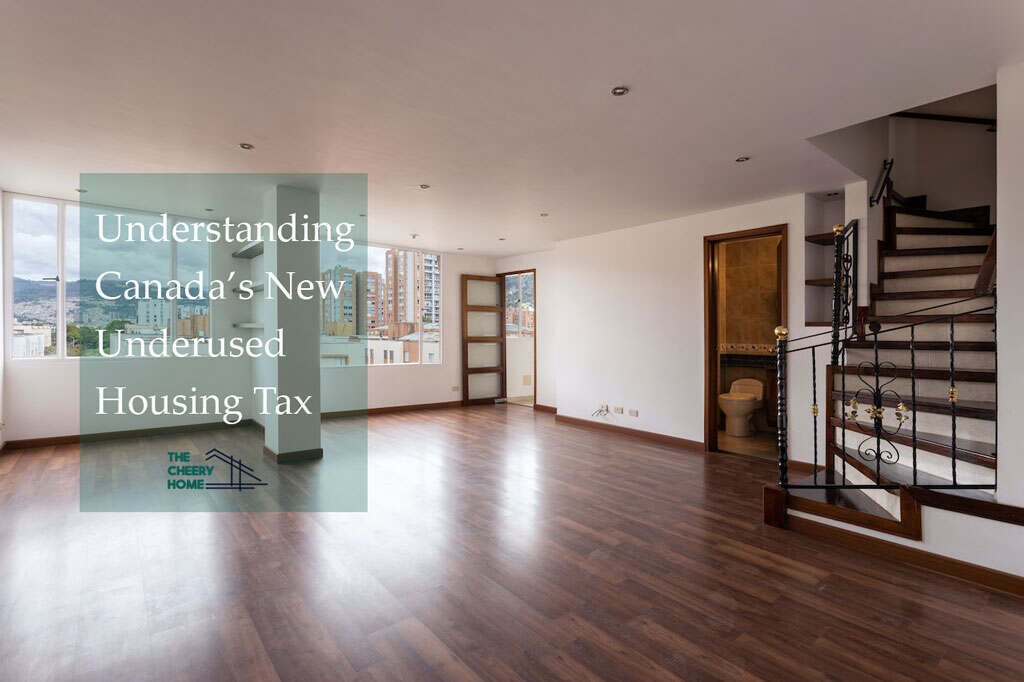On January 1, 2022, the Underused Housing Tax, a 1% yearly levy on the possession of vacant or underutilized real estate in Canada, came into effect. It’s meant to target non-resident, non-Canadians who own residential property (or multiple properties) that the CRA deems as “vacant” or “underused” as one of the measures to address Canada’s housing crisis.
There may be circumstances, however, when the Underused Housing Tax can affect Canadian citizens. The following is a summary of the highlights of this new tax. For more detailed information, follow the link above.
When is a Property “Underused?”
The Underused Housing Tax Act and the tax apply to residences that include:
- A detached home, a duplex or a triplex containing no more than three dwelling units.
- A part of a building that is a semi-detached home, a rowhouse unit or a residential condo.
- Other prescribed property, which can include other living spaces used as a residence.
Residential units under the Act are defined as those with a private living area and private kitchen and bath facilities. Such a property is considered underused if it is occupied less than 180 days in a year.
Who Does the Underused Housing Tax Apply To?
The Underused Housing Tax Act applies to every taxpayer who, on December 31 of a calendar year, owns a prescribed property and:
- Is not a Canadian citizen or permanent resident.
- Is a Canadian citizen or permanent resident who owns a qualifying residential property as a trustee of a trust (exclusive of personal representatives of deceased individuals.)
- Are people, including individuals who are Canadian citizens or permanent residents, that own a residential property as a partner in a partnership.
- Is a corporation that is incorporated outside of Canada.
- Is a Canadian corporation whose shares are not listed on a Canadian stock exchange designated for Canadian income tax purposes.
- Is a Canadian corporation without share capital.
They are referred to as “affected owners.”
Exemptions From the Underused Housing Tax
Exemptions to the UHT exist based on several factors, including the type of owner, availability of the property, location and use of the property and the property’s occupant.
Exemptions For Various Ownership Types
Exemptions based on ownership are available for a calendar year if you are:
- A specified Canadian corporation.
- A partner in a specified Canadian partnership or a trustee of a specified Canadian trust.
- A new owner in the calendar year
- A deceased owner or a co-owner or personal representative of a deceased owner.
Availability Parameters of a Residential Property that Qualify for an Exemption
You may qualify for an exemption from the UHT if the availability of your property was affected by the following circumstances:
- The fact that it was newly constructed.
- Its unsuitability for year-round living, e.g., it was seasonally inaccessible.
- It was uninhabitable for a certain number of days because of a disaster or dangerous conditions.
- It was under renovation.
Location-Based Exemptions
Vacation properties such as cottages that are located in an eligible area of Canada and used by you or your spouse or common-law partner for at least 28 days in the calendar year may qualify for an exemption.
Occupancy-Based Exemptions
You can also qualify for an exemption if the property is the primary residence for you or your spouse or common-law partner or for your child who is attending a designated learning institution for at least 180 days in the calendar year.
Other occupancies that qualify for an exemption include periods of at least one month in a calendar year during which one of the following qualifying occupants continuously occupies the property:
- Individuals with a written contract who deal at arm’s length with you and your spouse or common-law partner.
- Individuals with a written contract who do not deal at arm’s length with you or your spouse or common-law partner but who pay a fair rent for the property.
- You, or your spouse or common-law partner, who has a Canadian work permit.
- Your spouse or common-law partner, parent or child who is a Canadian citizen or permanent resident.
Calculating Your Underused Tax Obligation
If you are an affected owner, to calculate how much you must pay in UHT, multiply the value of the residential property by the 1% tax rate. You then multiply that result by your ownership percentage of the property.
How to Determine the Value of Your Property
You can either use your property’s taxable value or its fair market value for your calculations. However, if you choose to use fair market value, you must file an election with the CRA. This will require you to get an appraisal of the property by an accredited, professional real estate appraiser operating at arm’s length. The appraisal report must be prepared specifically for the purpose of assisting in the administration of the Underused Housing Tax Act.
Filing A Return for the Underused Housing Tax
As an affected owner of a residential property in Canada on December 31, you must file an Underused Housing Tax return for the calendar year – even if you qualify for an exemption and you do not owe any tax. Returns can be filed electronically or by mail.
Recommended Posts:









